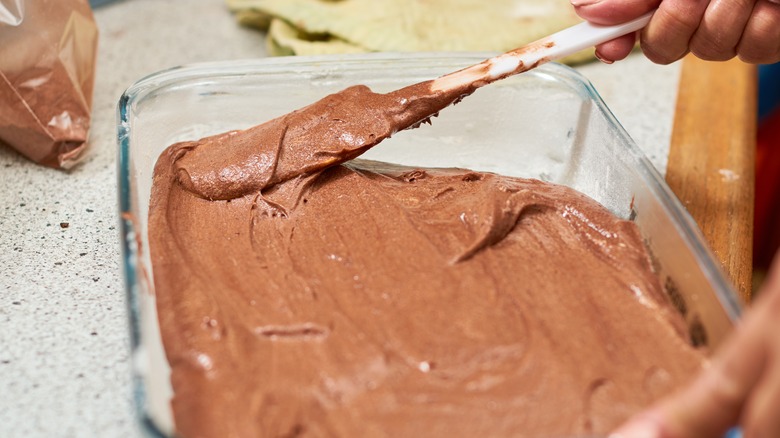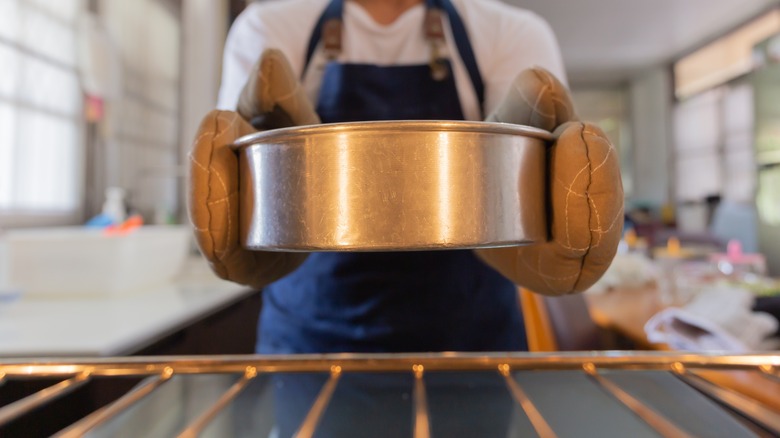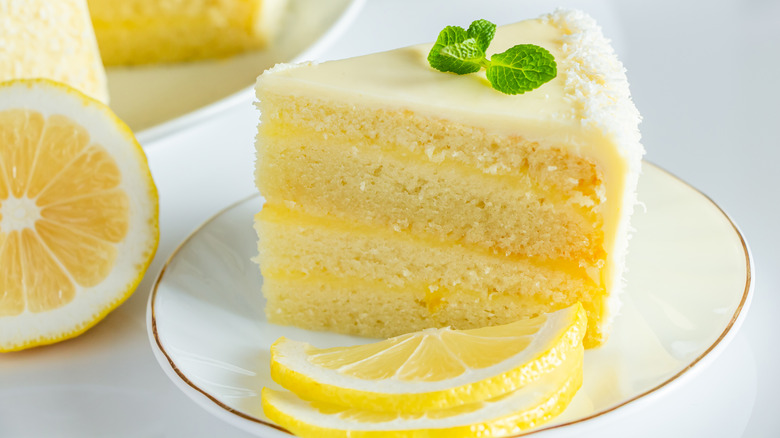Why You Need To Avoid Glass Dishes When Baking A Cake
Choosing the right bakeware is essential for achieving that perfect cake, and not just for the size and shape. Though glass cake pans are fairly common, opting for the material is surprisingly not the best decision. A cake that's baked in a glass pan will be more heavily browned on the outside and, therefore, drier and crustier.
In many cases, your cake might be undercooked in the center. This can even occur with glass pans that are advertised as oven-safe, as the term simply means that the pan can safely withstand high oven temperatures.
Whether oven-safe or not, glass pans react with and distribute heat in a way that prevents a cake from baking evenly. The material heats up slowly, which in turn can lead to a collapsed cake, and it also holds onto heat for an extended period. When you take the cake out of the oven, it'll continue to cook and brown instead of cooling down.
Better alternatives to glass cake pans
Next to glass, the worst material to bake a cake in is dark-colored metal. Similar to glass, dark metal results in cakes with uneven doneness that are overcooked on the outside and undercooked on the inside. The problem isn't that dark metals retain heat longer like glass, but rather that they absorb more of it faster.
For best results, bake your cakes in a light-colored aluminum cake pan. Being that it's metal, it conducts heat well, which is what you want when baking cake. However, because it's light in color, it won't absorb so much heat that it causes the outside to cook at a faster rate.
You'd think that ceramic pans would be as effective as aluminum due to their similarly light color, but their heat absorption properties are actually a lot like glass in that they get hot slower and stay hot longer. They are also even more prone to shattering compared to glass.
Exceptions for baking cake in a glass pan
Glass may not be the ideal material for baking most types of cakes, but there are exceptions where it can be a suitable choice. Glass outperforms other materials anytime acidic ingredients are involved. Since metal and acid react, whenever you're working with something like a pineapple upside-down cake or a citrus and sea salt Greek yogurt cake, a metal pan can cause it to develop a metallic taste. In that case, glass would be a favorable choice.
It may also be worth baking your cake in a glass pan for aesthetic reasons. Glass pans typically have rounded edges, so they yield cakes with rounded edges if that's the shape you prefer. Since you can see through the sides, they also make for better presentation in cakes like tres leches or dump cakes that are often served in the same pan they're baked in.
If you do decide to opt for a glass pan, it's crucial to reduce the temperature by 25 degrees Fahrenheit and bake it for an extra 10 minutes to counteract its poor heating capabilities.


